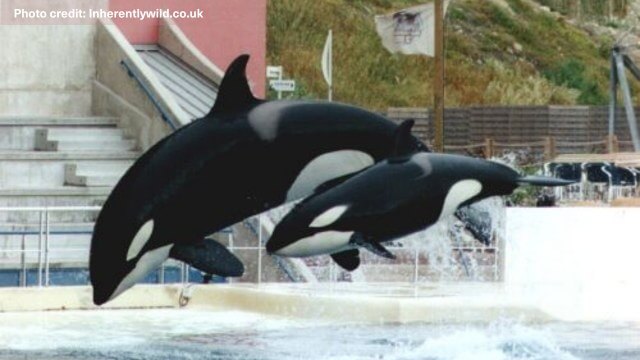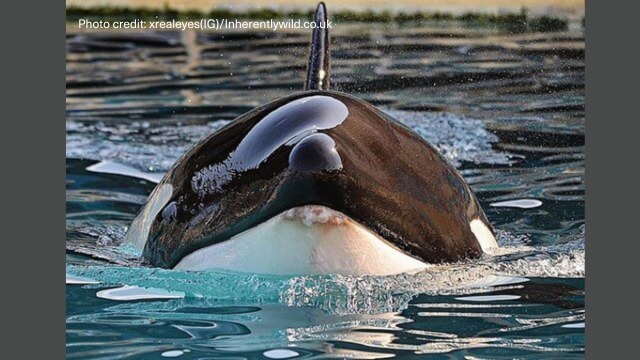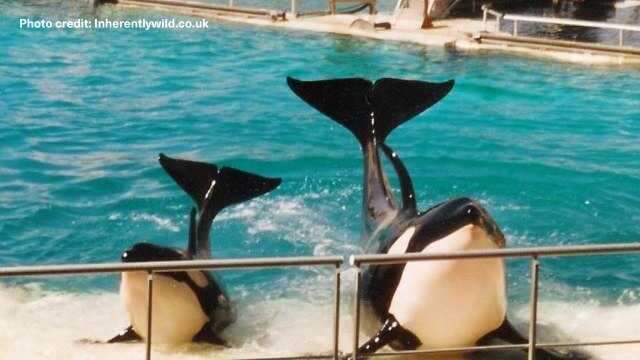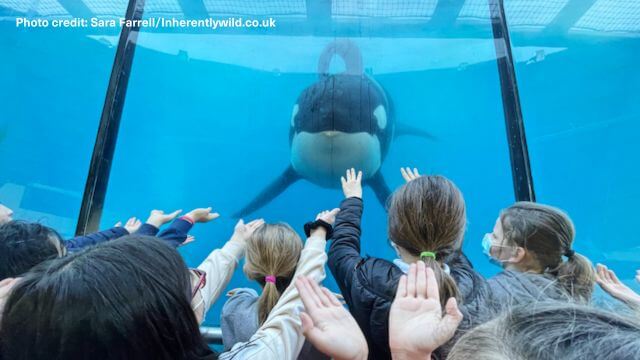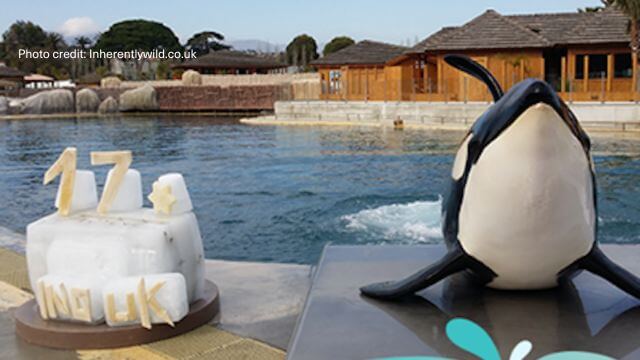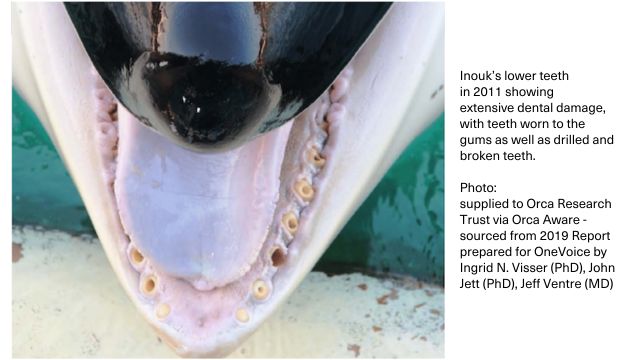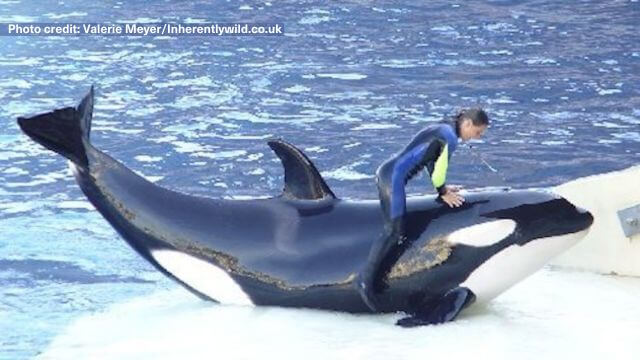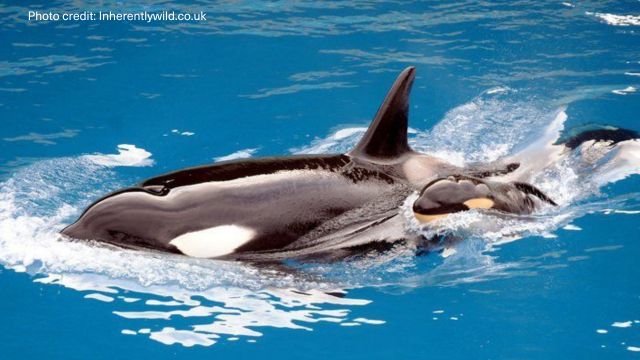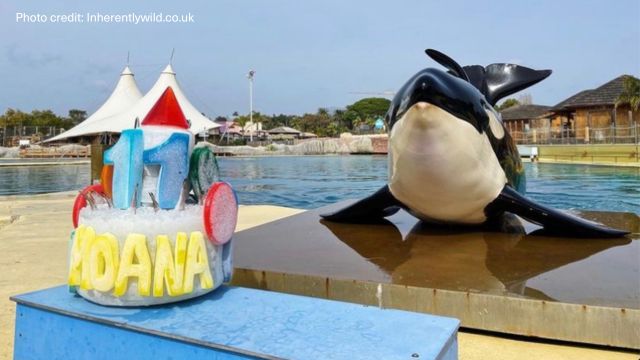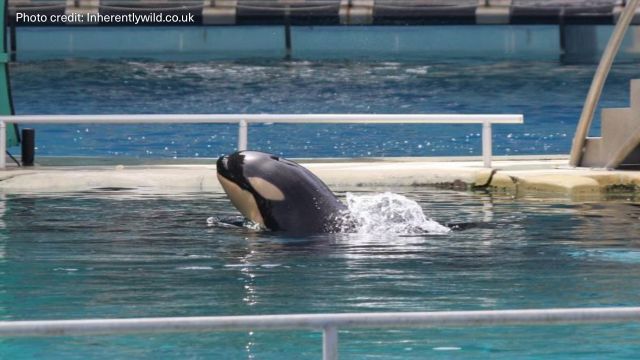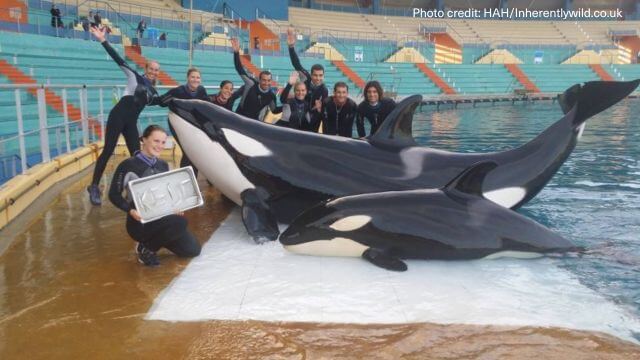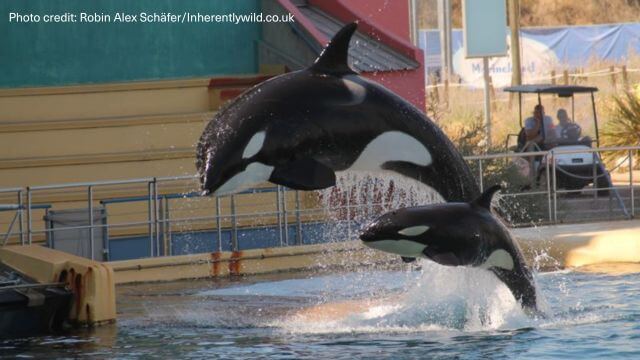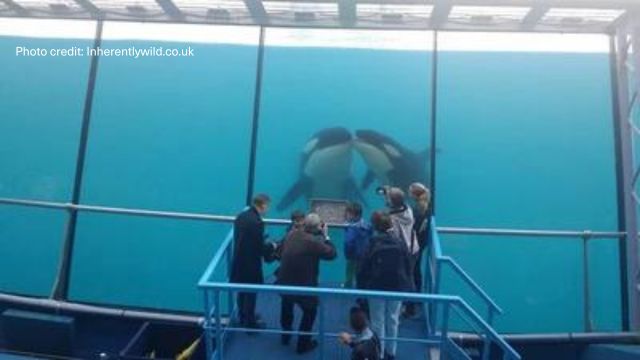This is the first in a series of posts about our work in the first quarter of 2024, which has been driven by the urgent need of two orcas at Marineland Antibes in France – Wikie and her son Keijo. Wikie and Keijo are the last surviving members of a family of captive orcas. In this post, we recap who they are and what may be the options for their future.
In the late summer of 2023, just as we were completing three years of required environmental studies at the Whale Sanctuary site in Nova Scotia, we heard about the plight of a family of orcas at the entertainment park Marineland Antibes in the south of France.
At that time there were four of them, all members of one family, and all born at Marineland Antibes: Wikie, Keijo and Moana (Wikie’s two sons), and Inouk (Wikie’s brother, and Keijo and Moana’s uncle).
Since then, Moana and Inouk have died.
Because of the deep concern that’s being voiced by animal protection groups in France and indeed around the world, we have been in discussions with the French government with a view to working collaboratively with the government and with Marineland Antibes to bring Wikie and Keijo to the sanctuary we’re establishing in Nova Scotia.

This unprecedented, ground-breaking project needs your urgent support. Your donation, large or small, will help ensure that whales like Wikie and Keijo can have a new life in an ocean environment.
The whales and their story
Wikie was born tail-first in 2001 – the cetacean equivalent of a human baby having a breech birth. Her parents had been captured in Icelandic waters and brought to Marineland Antibes. She spent the first 18 months of her life in a tank separate from her mother, Sharkane, who was very disturbed and unable to give her the care she needed. (In the ocean, young orcas always have their mother, aunts and other close family members close by to support them and are never left on their own.) Without that support and upbringing, Wikie was likely left emotionally damaged.
Inouk was born in February 1999 and was Wikie’s brother. Over the years, he ground his teeth to the pulp biting the edges of the tanks. He suffered from gum ulcers, frequent throat infections, yeast infections on his tongue, and acid reflux. In March 2024, we learned that Inouk had died from subacute fibrinous enteritis and peritonitis and from ingesting a metallic foreign body.
Moana was born in 2011 and was Wikie’s first son. He never met his father, Ulises, who had been captured off the coast of Iceland, taken to an aquarium in Iceland and from there to two zoos in Spain before being sent to SeaWorld San Diego in California. Wikie had been artificially inseminated by Ulises to give birth to Moana. But because of her emotionally scarred state, she was unable to bond with her newborn. Last October we learned that Moana had died of acute bacterial septicemia.
Keijo: Meanwhile, and all too soon after the birth of Moana, Wikie had found herself pregnant once again. In the wild, orcas space out their pregnancies over many years to give themselves a chance to properly raise their children. Worse yet, Wikie had been made pregnant by her half-brother Valentin. In November 2013, she gave birth to Keijo. And again, she had difficulty bonding with the newborn. But she has since become a very attentive mother.
There were other members of the family: Wikie’s older sister Shouka had been shipped to Six Flags Worlds of Adventure in Cleveland, Ohio, then to Six Flags Marine World in California, and from there to SeaWorld San Diego, where she is living today.
And Valentin, who was Keijo’s father, died from twisted intestines one week after a violent storm hit Marineland Antibes and severe flooding in the park reportedly contaminated the water of the whale tanks. Two other members of the family were stillborn.
The future for mother and son
Wikie and Keijo remain at Marineland Antibes, and their situation is clearly precarious.
Meanwhile, following a decree from the French government that keeping whales captive for entertainment must end by 2026, Marineland Antibes has been in discussion with an aquarium in Japan about sending Wikie and Keijo to an aquarium there, where they may be separated and used for breeding.
Orcas in the wild live in strong, vibrant extended families. That is why we call Wikie and Keijo “a family in distress.”
And it is why we have proposed to the French government and to Marineland Antibes that, rather than this mother and son being sent to Japan, we should all work together to retire them to the sanctuary in Nova Scotia.
Note: At the time of posting this and having submitted our “Expression of Interest” to the French government, we are awaiting word from the government on what it considers to be the best option for Wikie and Keijo. Marineland Antibes has indicated that it will follow the government’s recommendation. We, in turn, are committed to offering our assistance and expertise as appropriate if the government favors a different solution.
Meanwhile, there are, of course, many more whales in urgent need of retirement to sanctuary, including 36 at Marineland Canada and two in South Korea. We have held discussions with the owners of these facilities, and our current plan will be adjusted to suit whichever whales become available.
Next post: The plan to have the sanctuary ready to accept whales in 2025.
Hero image of Inouk, Keijo, Wikie, Moana, Valentine and Freya via InherentlyWild.co.uk.
